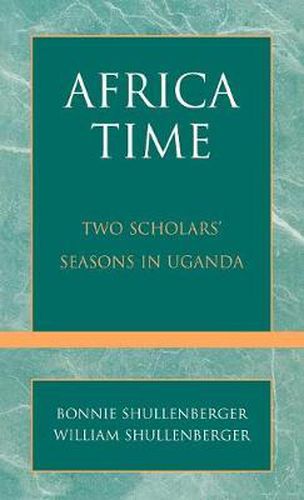Readings Newsletter
Become a Readings Member to make your shopping experience even easier.
Sign in or sign up for free!
You’re not far away from qualifying for FREE standard shipping within Australia
You’ve qualified for FREE standard shipping within Australia
The cart is loading…






Africa Time depicts the experiences and observations of two scholars who spent two years teaching at Makerere University in Uganda from a literary, religious and political point of view. It assesses the cultural, political, and educational prospects of contemporary Uganda, often challenging the preconceptions of typical western thought in regard to the future of Africa. It exposes the resilience, resourcefulness, and hospitality of Uganda’s people as they recover from a tragic postcolonial history and shows the growing strength of the family, churches, and markets in response to the turnaround taking place. Most prominently, the authors show the deepening awareness of cultural complexity as time exposes their assumptions and political attitudes associated with the African people through very personal observations and responses. Other topics covered include conditions of learning and life at the university; the roles, expectations, and education of women; tribalism African- and American-style; the politics of language and the language of politics; the complex riches of hospitality codes and the delicate boundaries and networks of intercultural friendships; the natural and human ecology of Africa’s wildlife preserves; American literature in Ugandan context; and the critical and prophetic role of African writing.
$9.00 standard shipping within Australia
FREE standard shipping within Australia for orders over $100.00
Express & International shipping calculated at checkout
Africa Time depicts the experiences and observations of two scholars who spent two years teaching at Makerere University in Uganda from a literary, religious and political point of view. It assesses the cultural, political, and educational prospects of contemporary Uganda, often challenging the preconceptions of typical western thought in regard to the future of Africa. It exposes the resilience, resourcefulness, and hospitality of Uganda’s people as they recover from a tragic postcolonial history and shows the growing strength of the family, churches, and markets in response to the turnaround taking place. Most prominently, the authors show the deepening awareness of cultural complexity as time exposes their assumptions and political attitudes associated with the African people through very personal observations and responses. Other topics covered include conditions of learning and life at the university; the roles, expectations, and education of women; tribalism African- and American-style; the politics of language and the language of politics; the complex riches of hospitality codes and the delicate boundaries and networks of intercultural friendships; the natural and human ecology of Africa’s wildlife preserves; American literature in Ugandan context; and the critical and prophetic role of African writing.